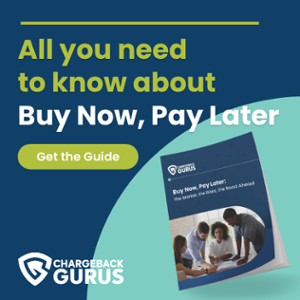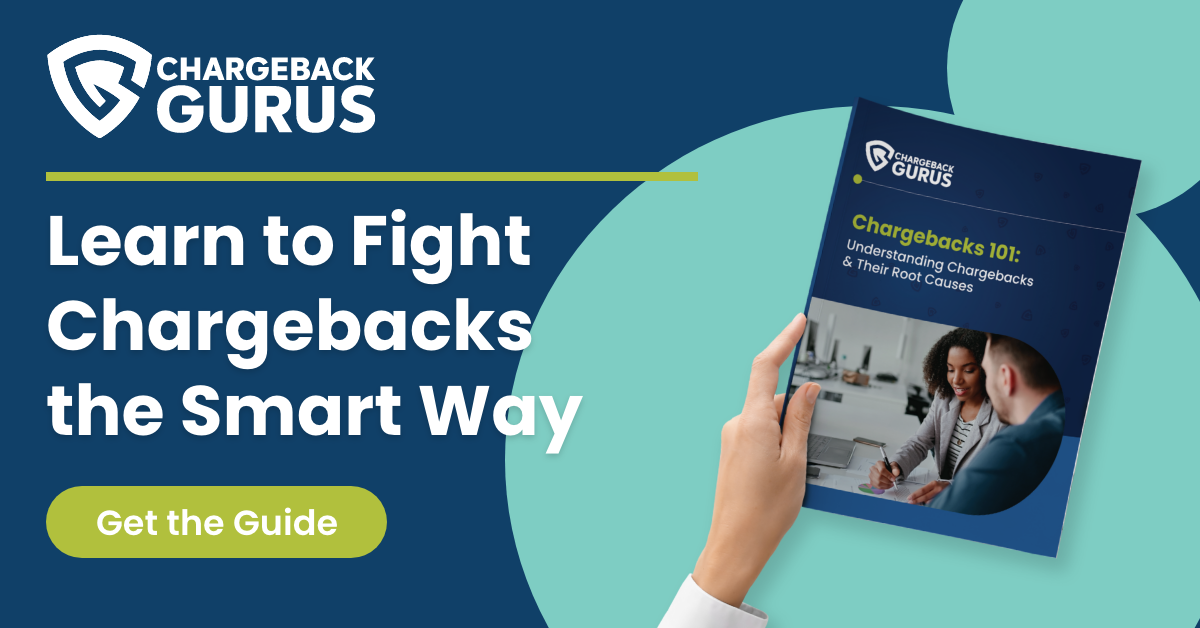Dealing with Retail Chargebacks
In the world of retail sales, “all sales are final” isn’t always up to the merchant. In certain situations, customers have the right to call their bank, dispute a credit card transaction, and receive a chargeback. The intended purpose of chargebacks is to protect consumers from fraud and billing errors, but that doesn’t mean every chargeback is a valid one.
Some consumers abuse the chargeback process on purpose, engaging in “cyber-shoplifting” by making up phony reasons to dispute a purchase and get their money back. What do retail merchants need to know about dealing with chargebacks?
Many of the retail trends that have pushed consumers towards e-commerce in recent years have had the unfortunate side effect of increasing fraud.
Digital payments, no-contact deliveries, and in-store pickup services are susceptible to theft and scams, and many consumers have learned how easy it is to dispute a transaction with their bank—even if they don’t have a legitimate reason for doing so.
Our internal data has shown that as many as two-thirds of all chargebacks could call under the category of first-party misuse, which means they are based on false or erroneous dispute claims and aren’t actually valid.
Merchants across the globe stand to lose more than $40 billion per year to various forms of payment fraud. On top of that, acquirers and payment processors will terminate their relationships with merchants who carry excessive chargeback rates for too long. To protect your revenue and your merchant account, you need a strategy capable of dealing with both legitimate and illegitimate chargebacks.
What are Retail Chargebacks?
Retail chargebacks occur when consumers dispute credit card transactions that were used to pay for retail goods. Some disputes are filed because an unauthorized third party used the card, but many consumers dispute their own transactions for one reason or another.
When a cardholder disputes a transaction, their issuing bank reviews their claim and decides if it constitutes a valid reason for a chargeback. If they think it does, they assign it a reason code and credit the funds back to the cardholder’s account. Then they instruct the merchant’s acquiring bank to reverse the transaction and withdraw the funds from the merchant account.
While there are many chargeback reason codes, all chargebacks fall into one of three categories:
- True fraud, when a stolen or compromised card is used without the cardholder’s authorization,
- Merchant error, when the merchant makes a transaction processing error or fails to uphold their purchase agreement with the cardholder, and
- Friendly fraud, also known as first-party misuse or chargeback fraud, which refers to chargebacks that will appear to be true fraud or merchant error based on the reason code, but are not based on accurate dispute claims.
Merchants are given the opportunity to respond to chargeback notifications. If you receive a valid true fraud or merchant error chargeback, all you can do is accept it. Friendly fraud chargebacks, however, can be fought and reversed—if you have the right evidence on your side.
Why Do Consumers File Retail Chargebacks?
Consumers generally file chargebacks against retailers either because they’ve been victimized by fraud, they’re unhappy with a purchase, or they’re trying to game the system to get their money back.
In a perfect world, all chargebacks would be the result of true fraud (and yes, in a more perfect world, there would be no credit card fraud). This is why the chargeback process was mandated into law, and by giving consumers this recourse, it helps to preserve their confidence in credit card payments as a whole.
Many chargebacks, however, are filed due to problems with late deliveries, product quality, confusion over billing, and other disputes that have an element of subjectivity, or could have been prevented by the merchant. Some of these chargebacks may be valid, but not always. Generally speaking, a consumer can get a chargeback when the item they purchased does not match the description provided by the merchant, but dissatisfaction with the quality is not usually a legitimate reason.
Consumers also file chargebacks when they see an entry on their billing statement that they don’t recognize, or forgot about, and assume that it’s fraud. Then there are consumers who engage in first-party misuse, filing fraudulent chargebacks on purpose and effectively helping themselves to a refund that they aren’t entitled to receive.
How Can Retailers Prevent Chargebacks?
Merchants can theoretically prevent all merchant error chargebacks, and to some extent, true fraud chargebacks. Friendly fraud chargebacks are difficult to prevent because they come from “regular” customers and are hard to predict, but there are ways to decrease their likelihood.
Preventing Merchant Error Chargebacks:
To prevent merchant error chargebacks, you need to find out why they’re happening and take appropriate action to remedy the causes. Analyzing your chargebacks can help you find out where merchant error is occurring. If you’re getting chargebacks due to transaction processing errors, you may need to train your staff better on proper procedures. If you’re getting valid “item not as described” chargebacks, you should use more accurate product descriptions on your website and marketing materials.
Missed or delayed deliveries often lead to chargebacks. Always provide tracking information, notify customers promptly about delays, and obtain signature confirmation on delivery whenever possible. If customers are picking up items in-store, make sure you check their ID before handing the goods off.
Preventing True Fraud Chargebacks:
For true fraud chargebacks, anti-fraud software is your best prevention method. Fraud filters that use artificial intelligence to detect and block suspicious transactions can be highly effective these days. Multi-factor authentication protocols can also stop fraudulent purchases, and when used to secure customer accounts on your own website or app, they can be effective at preventing account takeover attacks.
Preventing Friendly Fraud Chargebacks:
Erroneous chargebacks can be prevented by using clear and informative merchant descriptors. When the customer sees your charge on their billing statement, make sure you’re using a name they will recognize and including contact information such as a phone number or URL.
You can also prevent some friendly fraud chargebacks just by making it easier for customers to get a satisfactory resolution directly with you instead of complaining to their bank. Excellent customer service 24/7 and a flexible refund policy can go a long way toward reducing subjective consumer disputes.
When a customer engages in friendly fraud, it’s smart to block them from making future purchases. While some consumers are motivated by buyer’s remorse, others plan on charging back their purchase from the very get-go, and will do so repeatedly if you don’t block them.
What Can Retailers Do about Illegitimate Chargebacks?
When you receive a chargeback and determine that the dispute is false or erroneous, you can fight it through the chargeback representment process.
Chargeback representment involves submitting the charge a second time, along with documented evidence that refutes the cardholder’s claims. Every chargeback reason code should specify the type of evidence that is needed to successfully challenge it.
By keeping copies of all receipts, transaction records, and customer communications, you will be in a good position to have the right compelling evidence on hand when you get a fraudulent chargeback.
Conclusion
Chargebacks can be a big problem for retail merchants, depleting your revenue and threatening your standing with payment processors and card networks. By following the best practices outlined above, you should be able to reduce your chargeback risk, but sometimes it takes stronger action to get a surging chargeback rate under control.
If it feels like your chargeback problem is getting out of hand, don’t hesitate to reach out to a chargeback management company to get some expert help. The right firm will be able to deliver positive ROI and peace of mind for struggling retailers.
Thanks for following the Chargeback Gurus blog. Feel free to submit topic suggestions, questions, or requests for advice to: win@chargebackgurus.com




